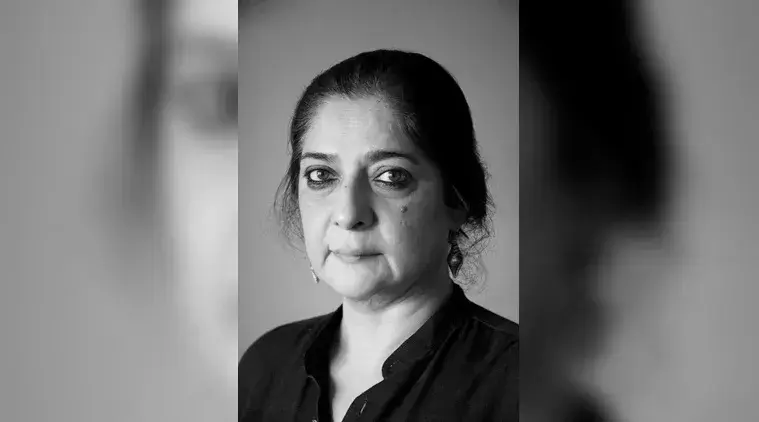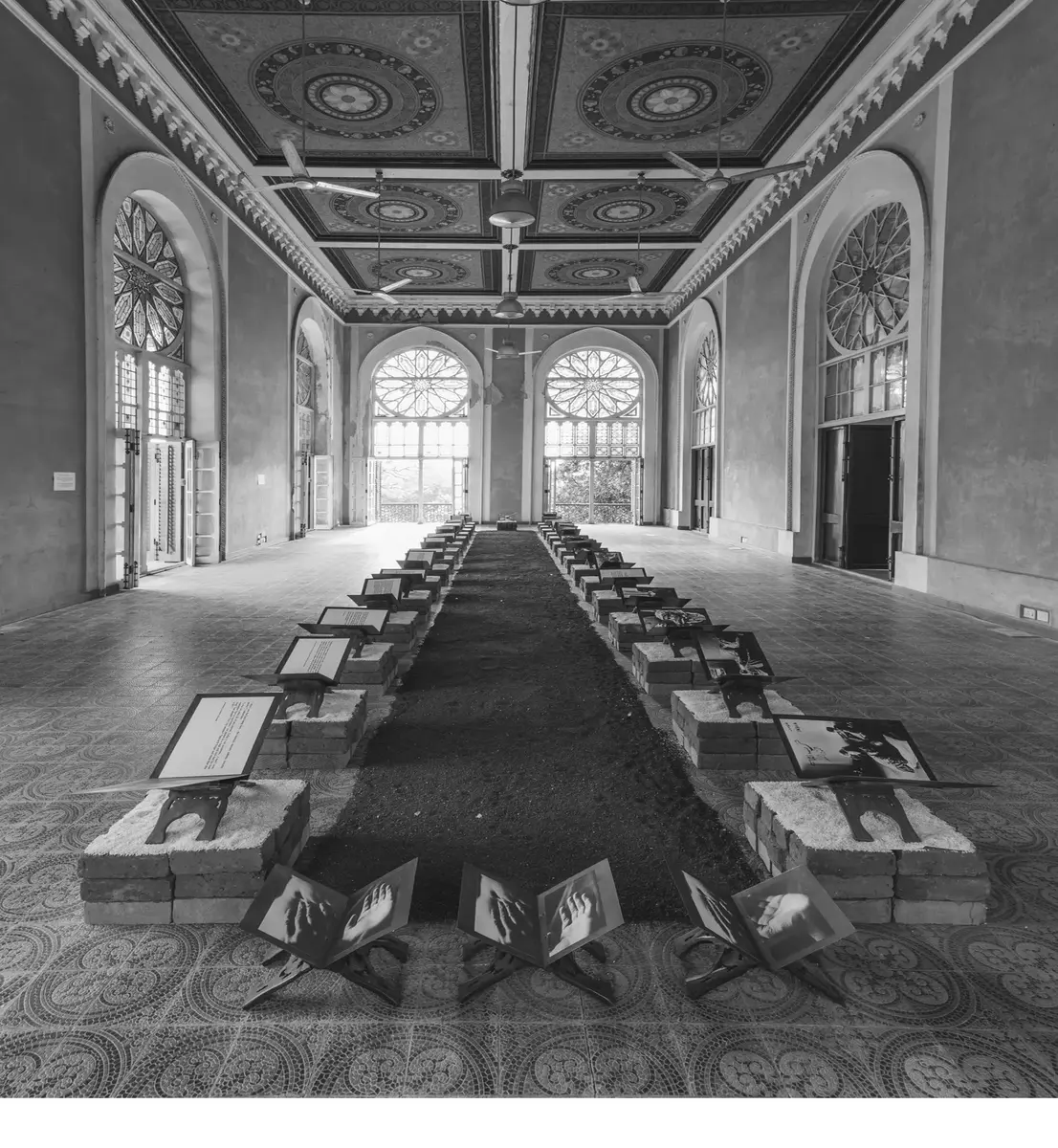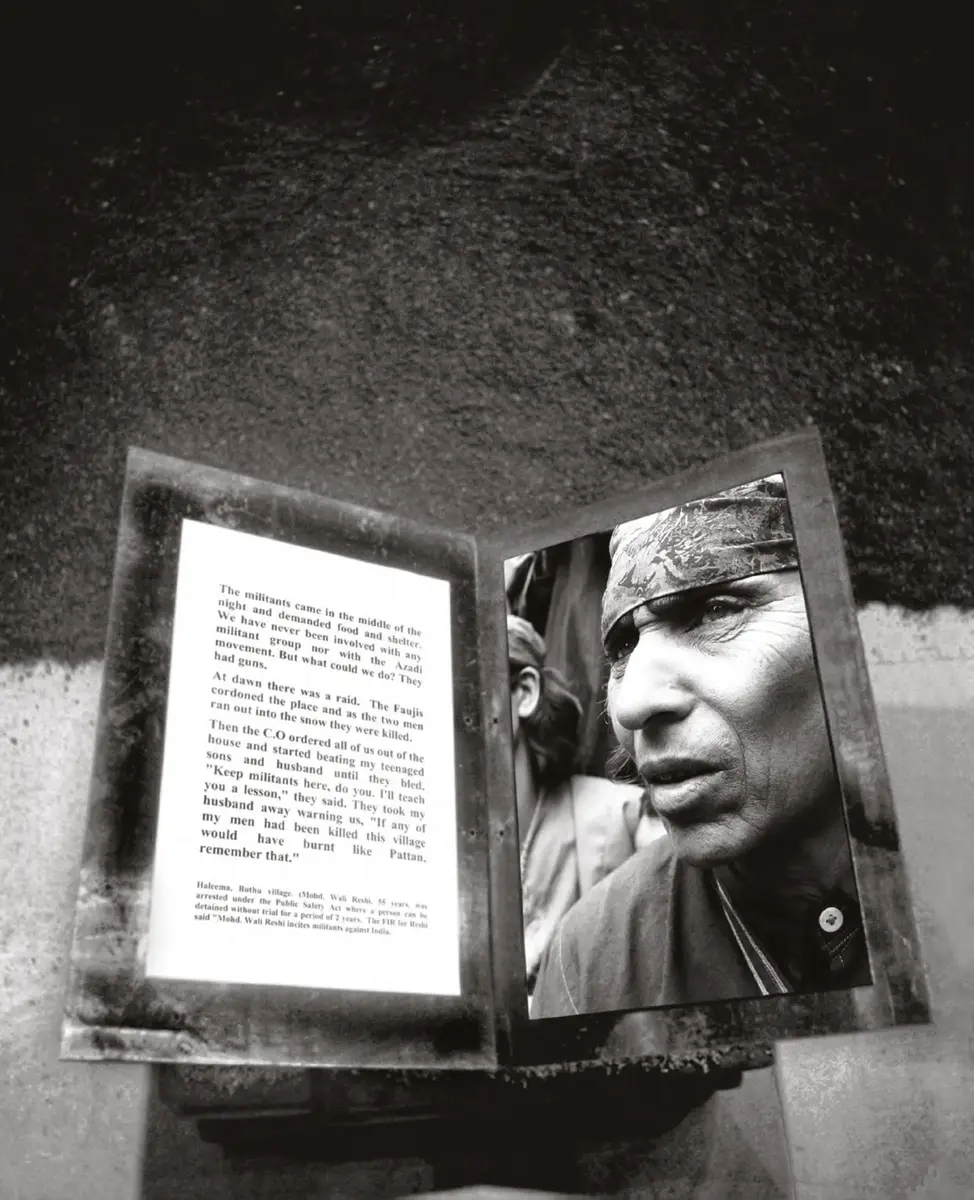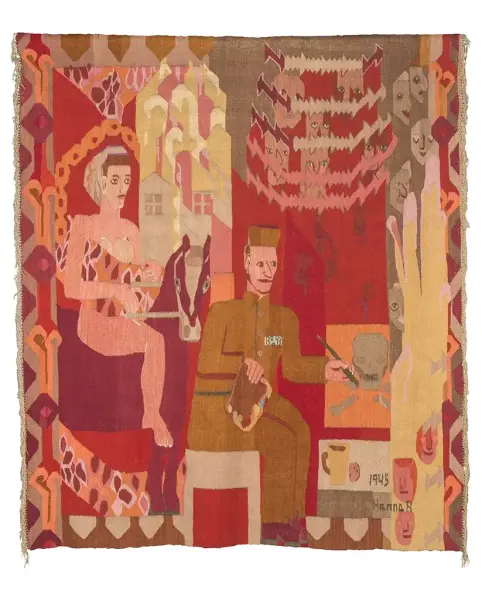Podcast
Listen to Sheba Chhachhi speak about her artistic practice and the work When the Gun is Raised, Dialogue Stops…: Women’s Voices From the Kashmir Valley (2000), which is featured in the exhibition Passing Motherhood.
- 1/1
duration: 12 min 55 sec.
Sheba Chhachhi & Sonia Jabbar
“When the gun is raised, dialogue stops...”: Women’s Voices from the Kashmir Valley, 2000
installation with B&W photographs; text; 36 wooden rihals (bookstands); rusted iron-sheet; locally sourced earth; bricks; rice
variable dimensions
In the eternal limbo between the hope and unfathomable loss that accompany life in war zones, the epicenters of competing patriarchies, how can a gendered take on trauma, a scab on collective memory, be addressed through representation and its limitations?
Long-standing friends, comrades, collaborators, and participants of women’s and peace movements in India, Sheba Chhachhi and Sonia Jabbar have developed the work “When the gun is raised, dialogue stops...”: Women's Voices from the Kashmir Valley over the course of 6 years. The idea for an installation emerged when Chhachhi first traveled to Kashmir in 1994. Kashmir is a land torn apart by decades of double-sided nation-state military violence, and Chhachhi joined an activist team working in the region as a photographer. Jabbar later joined Chhachhi in archival research, and returned to Kashmir many times for longer periods to document and write about the proxy war.
The first iteration of the installation, titled Caught in the Crossfire, was presented at the Beijing Women’s Conference in 1995, in a Peace Tent along with female activists from Rwanda and Ireland. In 1999, the work was installed in the corridors of the Hague Court of Justice, as part of the Hague Appeal for Peace. In 2000, “When the gun is raised…” was shown in Delhi. Now in 2025, this installation is shown for the first time in the North. In a global landscape continuously torn by geopolitical conflict, it serves as a reminder and also as an example of a decolonial and feminist response to the temporality of war.
The installation confronts the binary divisions in media narratives on Kashmir, and thus questions the geopolitical stance on so-called 'conflict zones'. “When the gun is raised...” shares the testimonies of women from across ethnic and religious spectrums: Shias, Sunnis, Sikhs and Kashmiri Pandits who have stayed in the Valley, as well as those who live in refugee camps. In the most vulnerable cases, there are no photographs paired with text; this absence addresses the limits of the image and speaks as eloquently as its presence. As Delhi-based cultural theorist and curator Nancy Adajania aptly notes in her essay “‘Obey the Little Laws and Break the Great Ones’: A Life in Feminism,” written for Chhachhi’s monograph, “Socialized in a feminist ethos, Chhachhi and Jabbar chose to address a heterogeneity of voices; they spoke across the class divide to the ‘half-widows’ (wives of missing militants), peasant women, college students and housewives who had endured brutality at the hands of both the militants and the armed forces.”
The perspective offered by Sheba Chhachhi and Sonia Jabbar is an inspiring combination of documentality and spirituality. The words of the women and their black and white portraits are presented next to each other on wooden bookstands. Placed in a non-hierarchical relationship, texts and photographs occupy the same amount of space. These bookstands are called rihals, and are meant to hold prayer-books of the Islamic, Hindu, Christian and Sikh faiths. Extracted from their original environments, the rihals with photographs and testimonies are placed on bricks surrounded by dark soil/compost, sourced locally in Trondheim, thus addressing the commonality and solidarity across borders.
- Yaniya Mikhalina

Sheba Chhachhi (she/her, b.1958, Harar, Ethiopia) is a photographer and installation artist. Through intimate and sensorial encounters, her lens-based works investigate contemporary questions about gender, the body, the city, cultural memory and eco-philosophy. Recent exhibitions include: The Imaginary Institution of India, Barbican, London, 2024–2025; Seven Lives & A Dream, MoMA, New York, 2024–2025; Geographies of Self, Serendipity Art Festival, Goa, December 2024. Recent publications include: Tate Photography: Sheba Chhachhi, Tate Modern, London (2022); and Arc Silt Dive: the Works of Sheba Chhachhi, Tulika Books, New Delhi (2016). Chhachhi lives and works in New Delhi.
Sonia Jabbar (she/her, b.1964, India) is a writer, photographer, filmmaker and activist who has been associated with a number of people’s movements since 1990. Jabbar has worked in Kashmir since 1995, authored articles and essays in major national dailies and numerous anthologies, directed a film Autumn Final Country (2003), as well as making a video installation, Granted under Fear (2015). She has received several awards, including: Scholar of Peace, Women in Security, Conflict Management and Peace (WISCOMP), 2000; and the Nari Shakti Puraskar (India's highest civilian award for women), 2019. Recent exhibitions include: “When the Gun is Raised, Dialogue Stops...”, Chennai Photo Biennale, 2019; and Nameless Here for Evermore, Khoj Studios, New Delhi, 2015. Since 2012, she has been primarily engaged in organic tea farming and wildlife conservation. Jabbar currently lives and works on a tea estate in north Bengal.
Production credits
Sheba Chhachhi & Sonia Jabbar
“When the Gun is Raised, Dialogue Stops…”: Women’s Voices From the Kashmir Valley, 2000
Installation with B&W photographs; text; 36 wooden rihals (bookstands); rusted iron-sheet; locally sourced earth; bricks; rice
Fabrication: Birendar Rana, Sheba Chhachhi Studio.
The authors thank the women of the Kashmir Valley for trusting them with their testimonies.
Supported by Sparebankstiftelsen SMN.
Thank you: Weinberger for the bricks and Tusvik pulverlakk for treatment of the soil.


